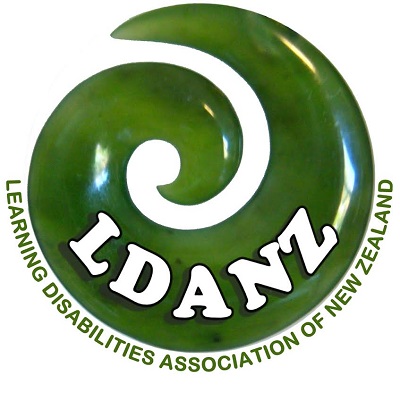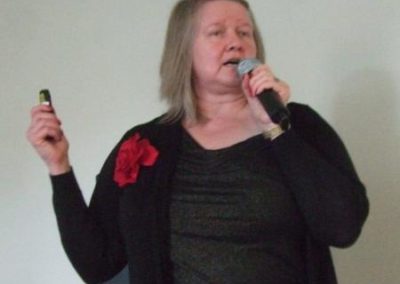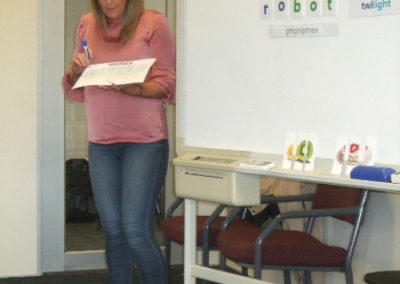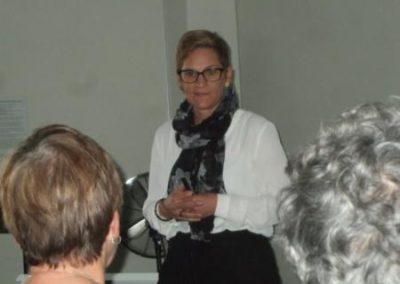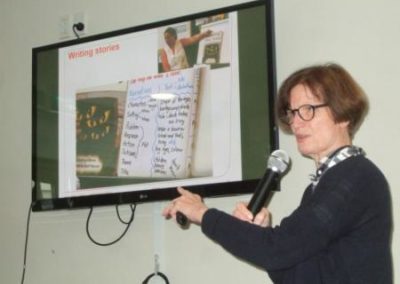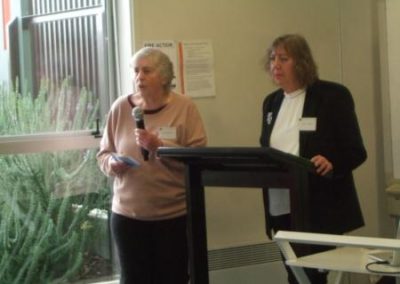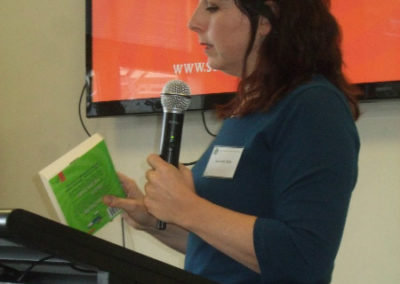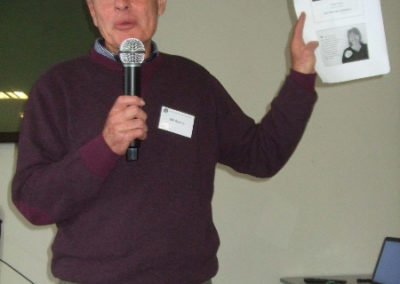Conference 2019
Conference 2019
Learning Disabilities: Current Understandings and Practical Approaches
July 6th – 7th July 2019 Hancock Community House Palmerston North
LDANZ is pleased to have hosting the 2019 conference in Palmerston North at Hancock House.
Information about the presenters and their presentations
Understanding Executive Functions – Janet Stowell
Executive functioning is a term that some New Zealand teachers are becoming increasingly familiar with. A large part of Janet’s RTLB practice is dedicated to supporting teachers’ understanding of issues that affect their students’ ability to learn. For her master’s research paper, she wrote a toolkit to raise awareness, inform understanding, and suggest practical ways of teaching students how to improve their executive functioning skills. The evaluation of this toolkit was the focus of her study. Janet completed her Master of Specialist Teaching in Learning and Behaviour through Massey University graduating with distinction in March 2017. Her findings steered her on an insightful path that led her to rewrite and publish her book, “The Executive Functions Toolkit for Classroom Teachers” believing that strengthening executive functions is the key to people developing sound life skills, increase their ability to learn and achieve self-regulation. Janet is an experienced classroom teacher with school leadership experience as a teaching principal, an assistant principal, SENCO (Special Education Needs Coordinator) and RTLB (Resource Teacher Learning and Behaviour). Primary trained, she has taught all levels from New Entrants to Year 8. Janet currently works as an RTLB, working with teachers and whanau of students who have difficulties with learning and/or behaviour, from New Entrants up to Year 10.
Janet will explain what executive functioning is, how to recognise weaknesses in executive functions and what can be done to support students to develop these skills. She will also discuss the necessity of developing these skills as a platform for learning particularly in relation to reading, writing and mathematics and identify useful strategies.
Writing for Impact: Strategies for Enhancing Writing of Narrative and Non-fiction Text - Dr Sue Dymock
This talk will focus on how to help students organise and manage writing fiction and non-fiction text. It will explain how students can use organisational strategies to ensure their writing is compelling, cohesive and complete. It will also show the importance of teaching students to use self-regulation checklists for setting goals and using positive self-talk to monitor their work. Dr Sue Dymock is a senior lecturer at the School of Education, University of Waikato, Hamilton. Sue’s research and teaching interests are in reading comprehension, vocabulary, reading difficulties, dyslexia and writing. She is an active researcher in the field of literacy and has published nationally and internationally articles, book chapters and books on reading comprehension, dyslexia and writing. Sue is a regular presenter at national and international conferences. Dr Dymock’s two most recent co-authored books, published by NZCER Press, are The New Zealand Dyslexia Handbook (2015) and Writing for Impact: Teaching Students How to Write With a Plan and Spell Well (2018). She is a Fellow of the International Academy for Research in Learning Disabilities.
When language learning goes wrong: making the critical difference. ~ Elisa Mynen
Elisa is the Founding Director of Speechie / Centre for Speech-Language Therapy, the largest independent provider speech-language therapy services in the central region. Speechie’s vision is to make it easy for people to get speech-language therapy when they need it, and Speechie operates a centre in Palmerston North as well as a regional mobile clinic and a nationwide online clinic. Elisa holds a Masters Degree in Speech-Language Pathology and Audiology and has been working in the education field with children with and families since 1995. She is a registered speech-language therapist with the New Zealand Speech-Language Therapists’ Association (NZSTA) and a member of the American Speech- Language-Hearing Association (ASHA) and the Royal College of Speech and Language Therapists (RCSLT) in the UK. Elisa is also a registered Learning Disabilities Teacher with the Learning Disabilities Association of New Zealand (LDANZ). Her professional special interest areas include Speech Sound Disorders, Language Disorder and Dyslexia. Outline of presentation:
1. SLT terminology explained
2. Overview of communication disorders
3. Putting oral language in perspective: the processing continuum
4. The role of oral language in classroom discourse
5. The role of oral language in the acquisition of literacy
6. Characteristics of primary learners with language learning disabilities
7. Assessment and intervention
Suzanne Main: children’s author ~ Writing for Children - What’s to Consider ?
As a child most of my time was spent with my nose buried in a book, much to the disgust of my younger sister who was always trying to entice me to play with her. Despite a love of reading, I followed a career path that led away from words – training and working as an accountant. I have a love for numbers and logic too.It wasn’t until much later in life I decided to try my hand at creative writing. In 2011 I completed the New Zealand Writer’s College Introduction to Creative Writing. This was followed up by a weekend novel- writing course where the idea for my first novel, How I Alienated my Grandma, was born. Spurred on by the encouraging remarks of my tutors (and without so much as a short story to my name), I gamely, and rather naively, set out to write a junior fiction novel. Miraculously (albeit slowly) I finished it in late 2012.In 2013 I entered my manuscript for the Storylines Tom Fitzgibbon award – a competition for unpublished writers. Five months later, I was visiting my elderly mother-in-law in hospital when I received a phone call to inform me that I had won. My excited shrieks brought two panicked nurses rushing into the room.Since then, How I Alienated my Grandma has been published by Scholastic NZ (NZ and Australia) and ARS Edition (Germany). It was a children’s choice finalist in the 2015 NZ Book Awards for Children and Young Adults, and is a Storylines Notable Book.
“What’s Next for SLD / LDANZ ? “-Professor James Chapman
James Chapman is Professor Emeritus of Educational Psychology and International Advisor at the Massey University Institute of Education. He received his M.A. with Distinction in Education from Victoria University of Wellington, and his Ph.D. in Educational Psychology from the University of Alberta, Canada, specializing in cognitive-motivational factors associated with learning disabilities. Professor Chapman trained as a secondary school teacher and taught for two years before undertaking doctoral studies in Canada. Following the completion of his PhD, he joined Massey University in 1980, and has held positions as Lecturer, Senior Lecturer, Associate Professor, and Professor. He served for 8 1⁄2 years as Head of the Department of Learning and Teaching, and 10 years as Pro Vice-Chancellor (Dean) of the College of Education. He has published over 150 journal articles, book chapters and books on learning disabilities, special education, literacy learning difficulties, early literacy development, reading intervention, and self- system factors in academic achievement. He serves or has served on the editorial boards of the Journal of Educational Psychology, Journal of Learning Disabilities, Learning Disability Quarterly, Australian Journal of Learning Difficulties, the Asia-Pacific Journal of Development Differences, and the International Journal for Research in Learning Disabilities. Professor Chapman served a 4-year term as President of the International Academy for Research in Learning Disabilities, and has been a member of the Executive Board for 20 years. In 1999 he was co-winner of the International Reading Association’s Dina Feitelson Award for Excellence in Research. Professor Chapman, will review past and current views of SLD, especially dyslexia, and what he sees as positive directions for the future both for our education system and for LDANZ as an organisation.
Workshops with:
Kirsty Parkes
Kirsty Parkes is a specialist educator at Learning Matters Ltd and is also the chief resource developer. Her passion sits in the development of clear concise evidence-based resources which teachers will use with ease and students will enjoy. Kirsty has a clever way of bringing activities and new learning to life. As a visual merchandiser in a previous life, the opportunity to be creative is right up her ally. Kirsty’s workshop presentation “Teaching of Select Syllable Types” will focus on developing an understanding of the importance of the direct teaching of syllable types. Participants will learn how to teach students to both decode and encode words of various syllable types. This workshop is for teachers
Carla McNeil
Carla McNeil is the Director of Learning Matters Ltd. Carla’s interest and experience stem from school leadership as a past principal. She enjoys influencing and implementing change across the country at a classroom and school level in a consultancy capacity. Carla’s workshop titled ‘ Nitty-Gritty – Evidence-Based Practice from the Nitty Systems to the Gritty Words’ will enlighten participants of the evidence-based practice that is now occurring in many schools across the country. Participants will be able to apply many elements to their own practice and will walk away with information and tools they can apply themselves when collaborating with and or supporting their local teachers and schools. This workshop is for teachers
Sue Webb
Sue Webb has worked for many years in the counselling and counsellor education fields within New Zealand, and has been prominent in professional bodies, such as the New Zealand Association of Counsellors and the International Association for Counselling. Having worked at Massey University for nearly 30 years as a counsellor educator, she now works in private practice with an emphasis on counselling, supervision, consulting and training. This workshop is for assessors and will be focused on consultation skills needed when undertaking LD assessments. This workshop is for assessors
